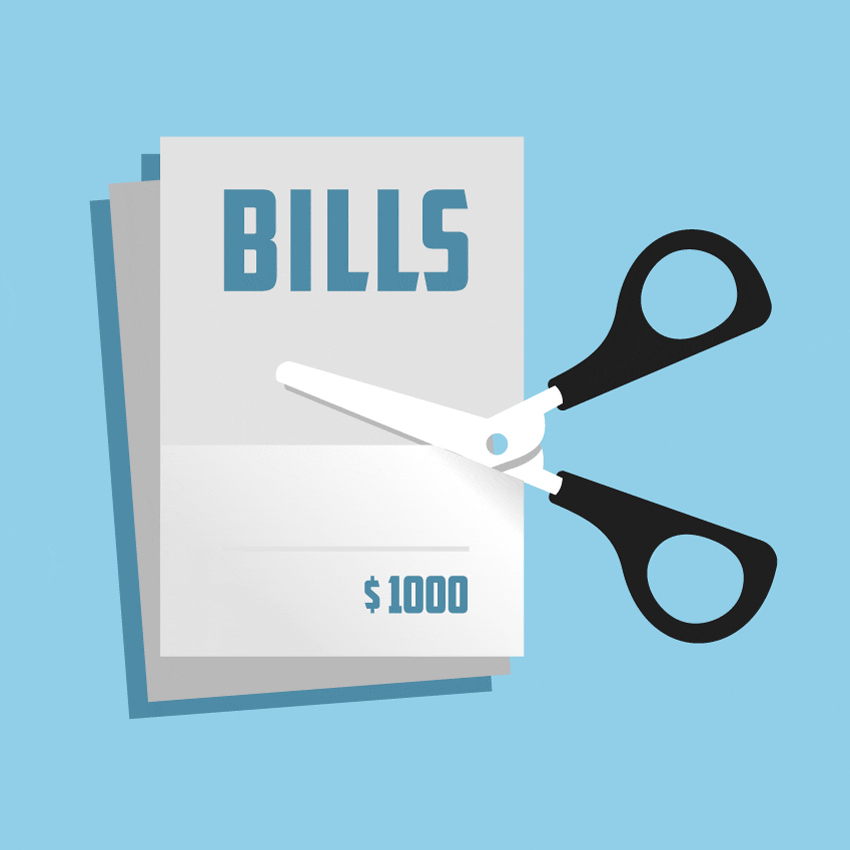
The Money-Saving Secrets of Minimalists
Written: Editor | April 27, 2023

Simplifying Expenses
When it comes to saving money, sometimes less is more. By adopting a minimalist approach to your finances, you can simplify your expenses and find extra savings. Here are some secrets to help you achieve this:
Cutting unnecessary expenses
-
Identify wants versus needs: Take a closer look at your spending habits and determine what expenses are truly necessary. Cut out any non-essential items or services that you can live without.
-
Simplify subscriptions: Evaluate your monthly subscriptions and cancel those you no longer use or need. Streamlining your subscriptions can lead to significant savings over time.
Budgeting effectively for essential expenses
-
Create a realistic budget: Take the time to create a budget that accurately reflects your income and expenses. This will help you prioritize essential expenses and avoid overspending.
-
Track your spending: Keep a record of your expenses to ensure you are staying on track with your budget. This will help you identify areas where you can cut back and find additional savings.
Embracing frugal living habits
-
Practice mindful shopping: Before making a purchase, ask yourself if you truly need the item. Consider borrowing, renting, or buying used instead of buying new whenever possible.
-
Focus on experiences: Instead of spending money on material possessions, prioritize experiences that bring you joy. This can help you shift your mindset away from unnecessary spending.
By simplifying your expenses and embracing a frugal mindset, you can save money and achieve your financial goals. Start implementing these minimalist money-saving secrets today and watch your savings grow.

Mindful Spending
Are you tired of living paycheck to paycheck and feeling like your money is slipping through your fingers? Adopting a minimalist approach to your finances could be the key to saving money and achieving financial stability. By focusing on what truly matters and cutting out unnecessary expenses, you can take control of your spending and build a secure future.
Understanding the difference between wants and needs
Before making any purchase, ask yourself: is this a want or a need? Understanding the difference between the two is crucial to practicing mindful spending. Wants are things we desire but can live without, while needs are the essentials required for survival. By prioritizing your needs over your wants, you can avoid unnecessary spending and save money.
Avoiding impulse buying and consumerism
We've all been there – standing in front of a tempting display, tempted to make an unplanned purchase. However, impulse buying can lead to regret and drain your bank account. To avoid falling into this trap, take a moment to pause and reflect before making a purchase. Consider whether the item aligns with your values and if it truly adds value to your life. By combatting consumerism and practicing intentional buying, you'll be able to save money and focus on what truly matters.
By adopting these minimalist money-saving secrets, you can take control of your finances, avoid unnecessary expenses, and build a more secure financial future. Remember, it's not about depriving yourself of enjoyment, but rather making conscious choices that align with your goals

Decluttering and Selling
If you're looking to save money and simplify your life, adopting a minimalist approach can be a game-changer. Not only will it help you free up physical space, but it can also put some extra cash in your pocket. Here are some minimalist money-saving secrets to get you started.
Clearing out unused items at home
-
Purging the excess: Take a good look around your home and identify items that you no longer use or need. Be mindful of sentimental items, but try to let go of things that are simply taking up space.
-
Organizing and categorizing: Sort your items into categories such as clothing, electronics, and home decor. This will make it easier to determine what you can sell and what can be donated or recycled.
The benefits of selling unwanted items
-
Extra cash: Selling your unwanted items can provide you with some much-needed extra income. Use the money to pay off debt, save for a rainy day, or invest in something meaningful.
-
Decluttering your space: By getting rid of items you no longer use, you'll create a cleaner and more organized living environment. This can lead to reduced stress and an increased sense of peace.
Effective ways to sell items and maximize profit
-
Online marketplaces: Utilize popular platforms like eBay, Facebook Marketplace, or Craigslist to reach a larger audience.
-
Garage sales and flea markets: Set up a stall at local events or host your own garage sale to attract bargain hunters.
-
Consignment stores: Take advantage of consignment shops where you can earn a percentage of the selling price.
Remember, the key to successfully implementing these minimalist money-saving secrets is to be intentional about what you keep and actively pursue opportunities to sell or donate items that no longer serve a purpose in your life.

Saving on Housing
Choosing a smaller, more affordable home
When it comes to saving money on housing, downsizing to a smaller and more affordable home can make a significant difference in your monthly expenses. Look for a home that meets your needs without unnecessary extras that you don't really need. Consider factors such as location, square footage, and number of bedrooms and bathrooms. Remember, a smaller home can still provide comfort and functionality, and the savings can be substantial over time.
Renting vs. buying: making the right decision
Another important consideration when it comes to housing expenses is whether to rent or buy. Renting may be a more affordable option in the short term, as it often requires less upfront costs and doesn't tie you down to a long-term financial commitment. On the other hand, buying a home can offer long-term financial benefits, such as building equity. It's important to carefully evaluate your financial situation, future plans, and the local housing market before making this decision.
Remember, the key to saving money on housing is to find the right balance between your current budget and long-term goals. By choosing a smaller, more affordable home and carefully considering your options when it comes to renting or buying, you can make significant savings that can contribute to your overall financial well-being.

Transportation and Travel
Embracing alternative modes of transportation
When it comes to saving money on transportation, there are several ways you can minimize your expenses. Consider embracing alternative modes of transportation that are not only budget-friendly but also environmentally friendly.
-
Public Transportation: Use buses, trains, or trams as a cost-effective option for commuting. Public transportation networks often offer discounted passes or monthly memberships that can significantly reduce your monthly transportation expenses.
-
Biking: If your destination is within a reasonable distance, consider biking instead of using a car or public transportation. It not only saves money but also promotes a healthy lifestyle.
-
Carpooling: Coordinate with colleagues or friends and share rides to work or events. Carpooling allows you to split the cost of fuel and parking, reducing individual expenses.
Budget-friendly travel tips and accommodations
When it comes to travel, there are several money-saving secrets to help you have a memorable vacation without breaking the bank.
-
Off-peak Travel: Plan your trips during non-peak seasons when airfare and accommodations are usually cheaper.
-
Accommodation Alternatives: Explore options like home-sharing platforms, budget hotels, or hostels instead of expensive resorts. These can provide comfortable accommodations at a fraction of the cost.
-
Book in Advance: By booking flights and accommodations well in advance, you can take advantage of early bird discounts and deals.
-
Local Experiences: Instead of expensive tourist attractions, opt for local experiences like exploring local markets, trying street food, or visiting free public attractions. These can be just as enriching and provide a more authentic experience.
Remember, with a little planning and creativity, you can save money without compromising on your transportation and travel experiences!

Meal Planning and Grocery Shopping
If you're looking for simple and effective ways to save money, adopting a minimalist approach to your finances can be incredibly beneficial. By focusing on intentional spending and reducing waste, you can make significant strides in maximizing your resources.
Reducing food waste and saving on groceries
-
Plan your meals: Taking the time to plan your meals for the week can help you avoid unnecessary purchases and reduce food waste. Create a list of ingredients you need and stick to it while grocery shopping.
-
Shop with intention: Avoid impulse buying by sticking to your list and only buying what you truly need. Be mindful of sales and promotions, but don't be swayed by deals on items you won't use.
-
Buy in bulk: Consider purchasing non-perishable items in bulk to save money in the long run. Just be sure to choose items that you will actually use and won't go to waste.
Meal prepping and cooking at home
-
Meal prep: Spend a little time each week prepping meals in advance. This not only saves you money but also saves time during busy weekdays.
-
Cook at home: Eating out can quickly drain your wallet. By cooking at home, you have better control over the ingredients you use, the portion sizes, and ultimately, the cost.
Remember, adopting a minimalist approach to your finances is about making intentional choices that align with your goals and values. By implementing these minimalist money-saving secrets, you can enjoy the benefits of a more financially conscious and sustainable lifestyle.

DIY and Repurposing
Looking to save some money and live a more minimalist lifestyle? Embracing DIY projects and repurposing items can be the way to go. Not only does it allow you to save money, but it also adds a personal touch to your home and reduces waste. Here are some secrets to help you get started:
Embracing DIY projects for home and personal needs
-
Home decor: Instead of buying expensive decorations, get creative and make your own. There are countless tutorials online for creating unique and stylish pieces that fit your taste and budget.
-
Repairs and maintenance: Do you have a leaky faucet or a squeaky door? Instead of hiring a professional, try fixing it yourself. With the help of online tutorials and basic tools, you can save a lot of money on simple repairs.
Repurposing and upcycling items
-
Upcycle old furniture: Instead of buying new furniture, give a new life to your old pieces. Sanding, painting, or reupholstering can transform an outdated piece into something stylish and unique.
-
Repurpose containers: Don't throw away empty jars, tins, or bottles. They can be used as storage containers, plant pots, or even candle holders. Get creative and think of new uses for items that would otherwise end up in the trash.
By embracing DIY projects and repurposing items, you can save money, reduce waste, and add a personal touch to your home. So, roll up your sleeves and start getting creative!

Building an Emergency Fund and Saving for the Future
If you're looking for some minimalist money-saving secrets, you've come to the right place. By adopting a few simple habits, you can start building an emergency fund and saving for your future without feeling overwhelmed.
Creating a realistic budget for savings
-
Track your expenses: Start by analyzing your spending habits and identifying areas where you can cut back. Look for subscriptions or memberships you no longer use or evaluate your dining out expenses.
-
Automate your savings: Set up an automatic transfer from your checking account to a savings account each month. This way, you won't be tempted to spend the money before saving it.
-
Embrace the 50/30/20 rule: Allocate 50% of your income towards necessities, 30% towards wants, and 20% towards savings. This rule helps you maintain a balanced approach to spending and saving.
Tips for staying motivated to save money
-
Set clear goals: Determine what you are saving for, whether it's a down payment on a house or a tropical vacation. Having specific goals in mind will help you stay motivated.
-
Visualize your progress: Create a visual representation of your savings goals, such as a savings chart or a vision board. Seeing your progress visually can be motivating and rewarding.
-
Reward yourself: Celebrate milestones along your savings journey by treating yourself to a small reward. It could be something as simple as enjoying a favorite meal at home or treating yourself to a movie night.
By implementing these minimalist money-saving secrets, you'll be on your way to building an emergency fund and saving for the future, all while maintaining a healthy and balanced lifestyle.

Frequently Asked Questions
Common concerns and questions about minimalist money-saving
Q: How can minimalist living help me save money?
A: Minimalism encourages simplifying your life and letting go of unnecessary expenses. By embracing a minimalist lifestyle, you eliminate the desire for constant material possessions and focus on what truly matters. This can lead to significant financial savings in the long run.
Q: Are there any specific strategies for saving money as a minimalist?
A: Absolutely! Here are a few minimalist money-saving secrets you can try:
- Declutter and sell unused items: Clearing out your space and selling items you no longer need can earn you extra cash.
- Embrace a simple wardrobe: Cutting down on clothing purchases and creating a capsule wardrobe can save you money and reduce decision fatigue.
- Cook at home: Preparing meals at home instead of eating out saves money and allows you to make healthier choices.
- Prioritize experiences over possessions: Investing in experiences rather than buying material things brings more joy and satisfaction without breaking the bank.
Q: Can minimalist living still be enjoyable?A: Absolutely! Minimalism is not about depriving yourself; it’s about being intentional with your choices. By focusing on what truly brings you joy and eliminating the excess, you can create a more fulfilling and enjoyable life. It allows you to prioritize experiences, relationships, personal growth, and the things that truly matter to you. And of course, it can lead to financial freedom and reduced stress.
Remember, minimalist money-saving is all about simplifying and being intentional with your choices. By adopting a minimalist mindset, you can save money, reduce clutter, and create a more meaningful and fulfilling life.



